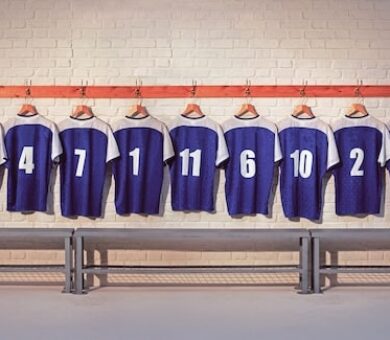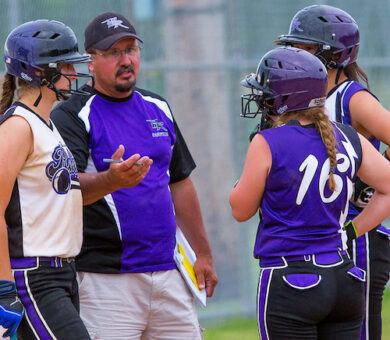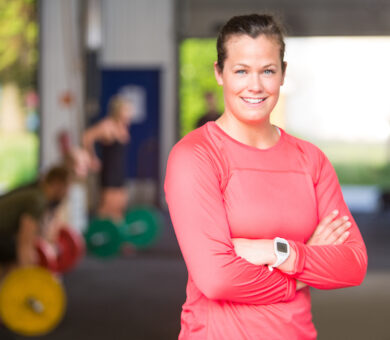Why Do Female High School Athletes Quit Playing Sports?
Female high school student-athletes are quitting junior high and high school sports at an alarming rate. According to the Women’s Sports Foundation, by age 14, many girls are dropping out of sports at a rate two times that of boys.
With all the positives that sports bring to adolescent females, why are they quitting?
Meet Jocelyn Hoselton. Jocelyn is a female coach on an all-male staff. When asked why she thinks girls are quitting at such an alarming rate compared to boys, she explained her situation.
Jocelyn’s Insight
Everyone wants to feel a sense of belonging. In my observations through 25 years of public education and coaching experience, this is a major contributing factor as to why high school female student-athletes participate in sports; they find value in being connected to a group of like-minded individuals while being able to compete in an activity they excel at and enjoy.
As times have changed and the level of play has increased, so have the demands being placed on student-athletes to remain competitive among their peers. Many of the female athletes I’ve worked with also hold high academic standards for themselves, with many upperclassmen taking CIS or AP classes to get a head start on their college careers.
When the stress of balancing academics, training/competing as a multi-sport athlete, and feeling the sense of belonging among a social group of peers becomes too much, our multi-sport female athletes are looking for a way to take something off of their plate. Our female athletes are considering quitting.
Range of Reasons
Their reasons range from any of the aforementioned stressors to being burned out of the training demands, wanting to specialize in a different sport, having lost the love for the game, and no longer feeling a sense of belonging.
In a time when the world is ultra-aware of the mental health concerns of young people, specifically adolescent female athletes in this case, who can blame them for wanting to reduce their stress?

Most adults, myself included, are not professionally trained to provide services or treatment for those in a mental health crisis, even at the least severe level. However, I’ve found a place in my role as a female varsity assistant coach to provide a sense of empathy and support to our female athletes that they can connect with in a different way than the male coaches on our staff.
Head coaches have so many tasks to manage: off-season player development, fundraising, youth program development and camps, staff assembly, practice planning, scouting, film breakdown, and game-night coaching, to mention a few. Additionally, head coaches strive to develop and maintain strong, positive relationships with their players, which include open lines of communication regarding players’ roles in the program.
Balancing all these tasks is no easy task in itself, as I’ve experienced being a former head coach myself. I knew at the time that there was a special and unique role for me in the lives of my female athletes as a former female athlete being their head coach.
When you’ve walked in someone’s shoes (adolescence and puberty as a female athlete), it helps develop a sense of empathy, support, and trust with others who are experiencing similar paths. This connection allowed me to have a different perspective and emotional connection to my athletes than the male coaches I worked with. Unfortunately, when I was in my role as a head coach, the performance tasks of the job were where most of my time and energy were spent.
Jocelyn’s Role as an Assistant Coach
My current role as a high school varsity assistant coach allows my list of tasks to be prioritized differently. Certainly, I do what I can to help generate ideas, implement systems, support the vision of the head coach for the program, offer support, loyalty, and my best work ethic.
More importantly, as the only female coach on our staff, I’ve taken pride in developing my role as a trusted female adult role model and mentor for our female athletes. My visibility in our youth camps/programs and as a middle school teacher has helped personal connections grow with some of our younger athletes, but the high school level has really been where my presence as a female coach has been invaluable. The male coaches I work with are great in their roles, but when our female athletes need feminine products, a change of clothes, an ear to hear about conflicts with friends, or an emotional break, my presence and availability is badly needed.

There have been several times we’ve had players communicate to us they want to quit. Sometimes, the athlete herself has approached me with this concern, seeking a conversation and guidance on what to do.
Other times, our head coach has understood the value of myself as a female having these important conversations with our athletes and has asked me to take on the task of connecting with those athletes.
What the Athletes Need
In most conversations, our athletes needed a place to feel safe and comfortable expressing their feelings/emotions, and reaffirmation of their role within the program. The conversations also evolved into more than just about playing the sport itself and their contemplation of quitting.
The attention to how the greater benefit of belonging in sport is so valuable in the development of life skills was discussed. Ultimately, these female athletes were looking for validation in their desire to belong.
As someone who has lived and breathed those very fears and feelings, I’ve been able to listen, reassure, and be a positive influence in the lives of many female athletes.

There are so many tools available to help coaches develop successful teams and programs: coaching clinics, Google, Twitter, YouTube, TikTok, you name it. There are unlimited resources to tap into. In my opinion, the most important resource of all for female athletes is the presence of a female coach on staff.



